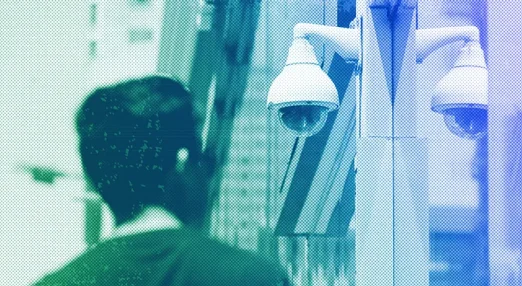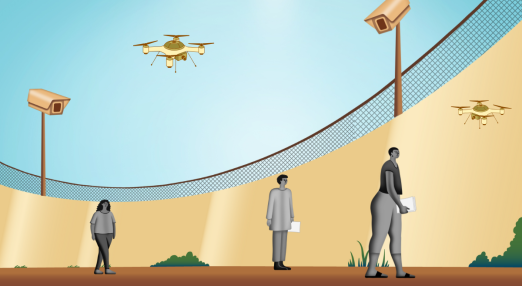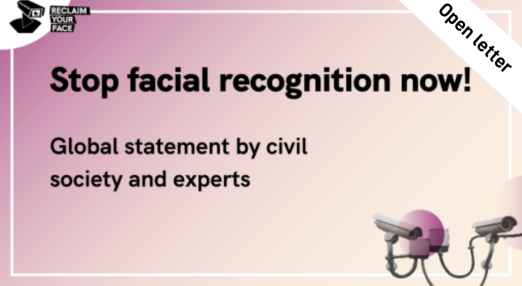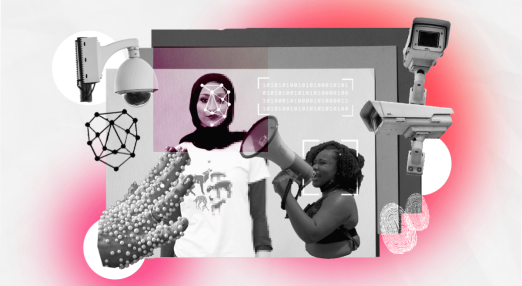AI proposals
Filter resources
-

EU AI Act: Deal reached, but too soon to celebrate
On 8 December 2023, following over 36 hours of negotiations, EU lawmakers finally cinched a deal on the Artificial Intelligence Act. However, whilst some fundamental rights protections have been won, the overall Act has not lived up to its potential to put people and their rights front and center.
Read more
-

NGOs and experts warn AI Act negotiators: don’t trade our rights!
On 8 December 2023, 70 civil society groups and 34 expert individuals sent an urgent letter to the Council of EU Member States, the European Commission and the European Parliament to urge them "Do not trade away our rights!" in the final trilogue (negotiation) on the landmark Artificial Intelligence (AI) Act.
Read more
-

New educational videos about AI in media, privacy & digital exclusion. Here is what they show
You can now watch all ten videos about artificial intelligence (AI) in the media, cybersecurity for journalists, but also about digital exclusion and the impact of digitalisation on people with disabilities. This is one of the final outputs of the project „Promoting human rights in the digital era“, which involved members of EDRi Iuridicum Remedium (IuRe) from the Czech Republic and Elektronisk Forpost Norge from Norway.
Read more
-

Civil society statement: Council risks failing human rights in the AI Act
In the run up to EU AI Act trilogue negotiation, 16 civil society organisations are urging representatives of the Council of the European Union to effectively regulate the use of AI systems by law enforcement, migration control and national security authorities in the legislation.
Read more
-

AI Act: What happens when lawmakers’ faces get scanned with face recognition algorithms?
EDRi member in Italy Hermes Center simulates face recognition on lawmakers to pressure them for a total ban of remote biometric identification (RBI) in the Artificial Intelligence (AI) Act.
Read more
-

The EU wants to make facial recognition history — but it must be done for the right reasons
Whilst civil rights activists have long called for an outright ban, certain EU lawmakers may see the AI Act as an opportunity to claim that they are doing the (human) right(s) thing — and actually doing the opposite.
Read more
-

EU AI Act Trilogues: Status of Fundamental Rights Recommendations
As the EU AI Act negotiations continue, a number of controversial issues remain open. At stake are vital issues including the extent to which general purpose/foundation models are regulated, but also crucially, how far does the AI Act effectively prevent harm from the use of AI for law enforcement, migration, and national security purposes.
Read more
-

Unchecked AI will lead us to a police state
Across Europe, police, migration and security authorities are seeking to develop and use AI in increasing contexts. From the planned use of AI-based video surveillance at the 2024 Paris Olympics, to the millions of EU funds invested in AI based surveillance at Europe’s borders, AI systems are more and more part of the state surveillance infrastructure.
Read more
-

Potential loopholes in the AI Act could allow use of intrusive tech on ‘national security’ grounds
Both the European Union (EU) and the Council of Europe (COE) negotiations are considering excluding AI systems designed, developed and used for military purposes, matters of national defence and national security from the scope of their final regulatory frameworks. If this indeed happens, we will have a huge regulatory gap regarding such systems.
Read more
-

Global civil society and experts statement: Stop facial recognition surveillance now
198 civil society groups and eminent experts are calling on governments to stop the use of facial recognition surveillance by police, authorities and private companies.
Read more
-

EU lawmakers must regulate the harmful use of tech by law enforcement in the AI Act
115 civil society organisations are calling on EU lawmakers to to regulate the use of AI technology for harmful and discriminatory surveillance by law enforcement, migration authorities and national security forces in the AI Act.
Read more
-

Council of Europe must not water down their human rights standards in convention on AI
In a joint statement, civil society calls for a broad scope and definition of AI systems and no blanket exemptions for AI systems for national defence/national security.
Read more
